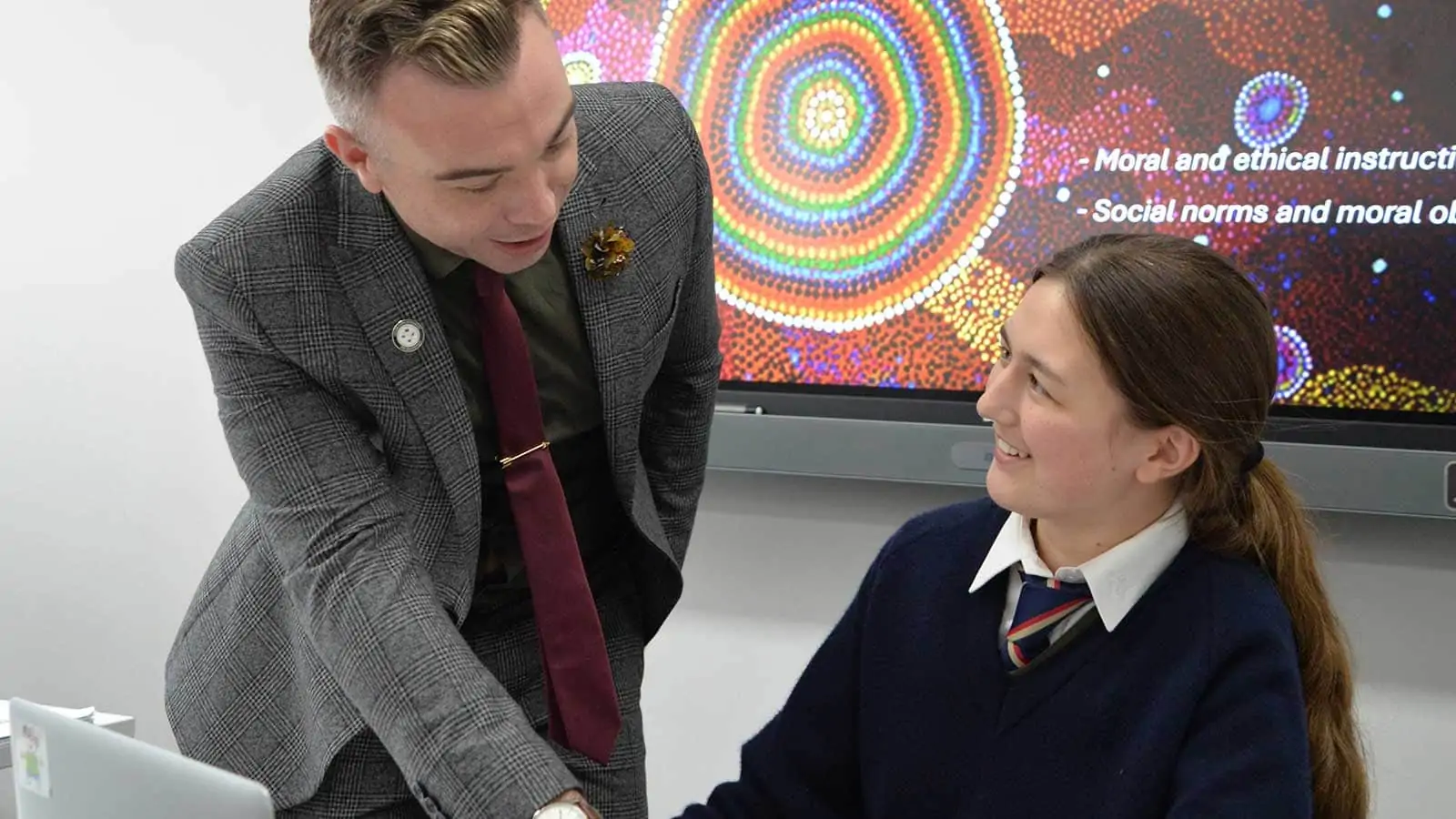This year, a new 1-unit course was introduced to Ascham for students in Year 11 embarking on the first year of their HSC courses.
Matthew Massey, History Teacher and Director of Professional Learning at Ascham, explains why Studies of Religion offers so much to our students…
As a non-denominational school, offering our students the opportunity to undertake the Stage 6 Studies of Religion course may seem puzzling. However, it is not a religious education course, but instead a wonderful opportunity for our students not only to appreciate cultural diversity but also to understand the impact that religion plays in an increasingly secular society.
As student Alexandra noted: ‘Ascham’s status as a non-denominational school results in Studies of Religion being taught from a factual, historical perspective that allows students to form their own opinions and deepen their understanding of the world around us.’
Fundamentally, by having an appreciation of different cultures and worldviews, our girls are better placed to be global citizens who can help strengthen a multicultural and pluralistic society through an understanding of different perspectives. This has been something that the current Studies of Religion students have reflected on deeply.
‘Learning about different religions has helped to improve my understanding of why societies behave the way they do and the diverse ways in which people approach life,’ said Francesca. ‘I have found Studies of Religion to be a fascinating and enjoyable subject.’
The Stage 6 course requires schools to complete an in-depth study of two of the major world religions; Ascham has chosen Christianity and Judaism due to their contextual relevance in Sydney’s Eastern Suburbs where our School is located. The study is not evangelical but rather an opportunity to develop cross-cultural understanding and learn how religion has shaped our society today—and how it continues to be challenged through modernisation and globalisation. For example, our young people develop an awareness of how many Western laws are based upon Old and New Testament teachings. Student Maija concurs: ‘I have learnt the importance of tradition and its connection to culture, which is a vital aspect of many people’s lives.’
Furthermore, the very nature of the course allows students to gain a deeper understanding of current affairs, such as the recent overturning of Roe v Wade by the United States Supreme Court, and their connection to a fundamental religious conservatism that can wield enormous power.
This connection between religion and current affairs is such a valuable aspect of the Studies of Religion course and has evoked discussion around the influence of religion over education and gender equality. The course provides an opportunity for students to reflect on how modernity and the increasing pace of social transformation can challenge and evolve some religious worldviews, for example around the definition of marriage. The course also provides a chance for students to become aware and discuss current bills and the impact of religious lobbyists on them, such as the recent Religious Freedom bill.
A core focus of the course is not only about developing our students’ appreciation of the five major world views, but importantly, also the customs, practices and spirituality of First Nations people.
This year, the Gujaga Foundation in La Perouse, with whom Ascham has developed an ongoing relationship, has guided our Year 11 Studies of Religion cohort in the importance of the Dreaming and the connection of Indigenous Australians to the land. This is reinforced in the HSC course where there is a specific focus on the relationship between First Nations spiritualities and traditions with the continued process of reconciliation; for example, through the Land Rights movement and the continuing effects of dispossession in relation to the Stolen Generations.
Students Alice and Alexandra both reflected on the riches of studying First Nations culture. Alice said she enjoyed ‘learning about cultures and practices different from my own, in both modern and ancient contexts. Learning about Aboriginal culture in particular gave me insight about the owners of the land and widened my worldview regarding Australia as a multicultural society.’ Alexandra noted that studying the Dreaming is something that is ‘often neglected when studying Australia’s history and is vital to understanding the land on which we meet and learn today.’
As well as providing our students with the knowledge and understanding to be ethical and socially responsible citizens who champion fairness and equality, the Studies of Religion course also develops our students’ analytical, research and communication skills—beneficial for all subject areas. As Alexandra points out: ‘To anyone who is interested in current affairs and global issues, Studies of Religion is an excellent course that deepens your understanding of the global and extends far beyond the classroom. The course provides general, contextual knowledge of the major religions, which is very useful to subjects such as English, Ancient and Modern History.’
Our first cohort of students has embraced this new subject, which requires them to evaluate, construct sophisticated arguments and synthesise evidence. They are rapidly becoming equipped with a critical awareness of the influence of religion and traditions on both individuals and societies right across the globe.
Read about Ascham’s academic results here.



